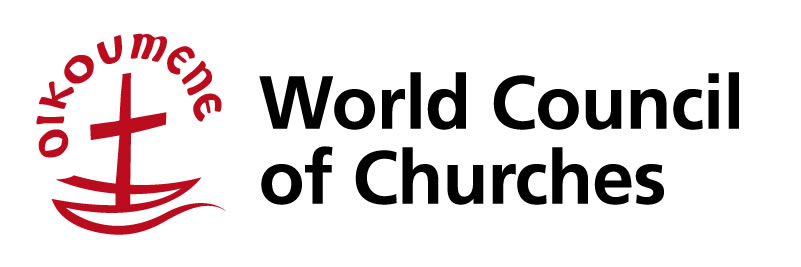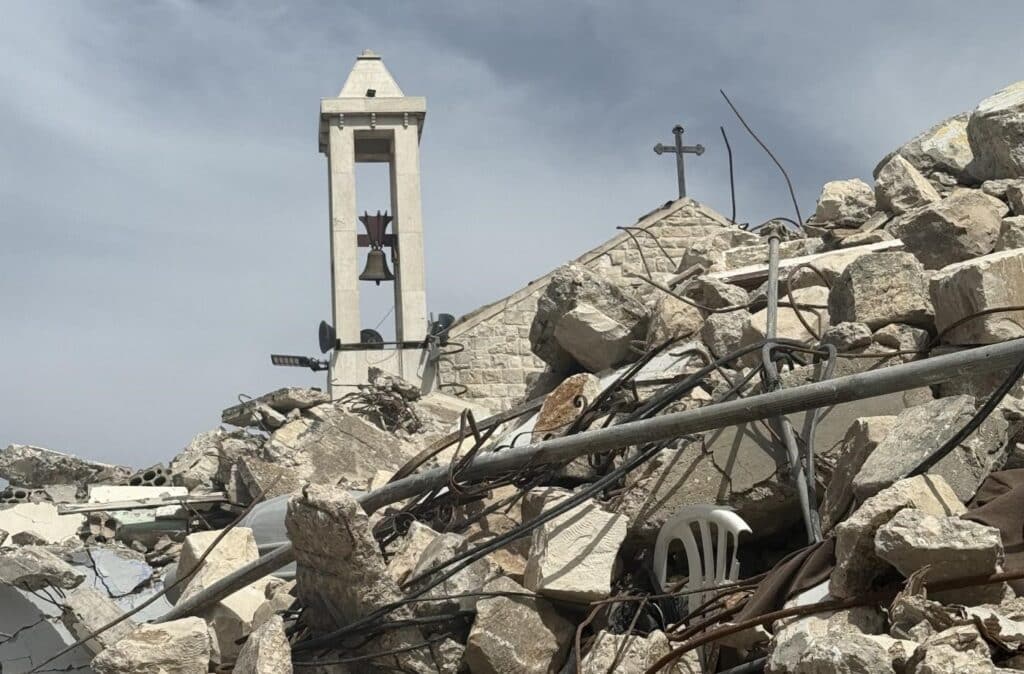WCC NEWS: Impact of war in Lebanon impossible to ignore
During a field visit to the south Lebanon, organized by youth groups and movements from the churches of Lebanon in cooperation with brothers from the Taize community, Maria Bzdigian, project manager at the Middle East Council of Churches, found the impact of the war heartbreaking—and impossible to ignore.

She was part of a group of representatives from Lebanese churches—including Maronites, Protestants, Greek Orthodox, Syriac, Greek Catholic, and Armenian Orthodox—who gathered in Beirut and headed together to south Lebanon.
They went with army escorts and necessary approvals since some areas were restricted due to security risks. They visited several villages.
“Everywhere we went, we saw destruction in villages, with collapsed homes, bombed roads, and buildings reduced to rubble,” she said. “Military approval and escort were required at every step, because some areas are still dangerous or restricted.”
In one of the villages she visited, a bombing happened while they were there. “It was a chilling reminder that the war isn’t over for those living there—it’s still part of their daily reality,” said Bzdigian. “Churches were not spared either.”
One church had been bombed five times; now, only three walls remain.
“And yet, in the middle of this devastation, we found families who had stayed not because they had a choice, but because they had nowhere else to go,” said Bzdigian. “Some parts of their houses were completely collapsed, but they stayed.”
Some stayed despite being able to leave because this is their home. “And what amazed us was their warmth and hospitality,” said Bzdigian. “They welcomed us with open arms, offered us drinks, and shared their stories.”
They spoke with raw honesty about their fear, their exhaustion, their loss, and how overwhelmed they felt. “Some told us how painful it was when people came just to take photos and left without offering real support,” she said. “But they also shared about the people who had come to truly help those who brought financial support, encouragement, and stood with them in solidarity.”
Spirit of youth
What stood out, said Bzdigian, was the spirit of the youth and all the people the group met. “They were brilliant, kind, and full of life,” she said. “They shared about the roles they’ve taken on in their communities, the activities they are organizing, and the challenges they face.”
Despite everything, they had hope—and they gave hope. “Every encounter with them was marked by love, resilience, and the desire for peace,” said Bzdigian. “One beautiful gesture that touched us was how they welcomed us each time by singing the song of the Resurrection.”
The strength and tenderness of the people they visited has stayed with Bzdigian.
“In the heart of so much destruction, they still carry light,” she said. “Their courage to keep going, their deep love for their land, and their willingness to serve their communities reminded me that even in the darkest times, hope is alive.”
She did not find bitterness. “Instead, they spoke of healing, of rebuilding, of staying rooted in love and faith,” she said. “That kind of spirit is powerful. It lifts you up.”
Hope also came through the way the group did not just observe—but listened.
“In those shared moments, we saw how solidarity becomes strength,” said Bzdigian. “South Lebanon is breathtaking—its nature, its history, its people. It holds a piece of my heart. Once you’ve walked its paths and listened to its people, you never really leave it behind. Seeing it wounded and worn was overwhelming, but I believe in its beauty and in its future. I carry the hope that this land will not only rise again, but that it will flourish with peace, with dignity, with life.” She asks for prayers that the people of Lebanon may stand again on their feet. “Pray for reconstruction, not just of buildings, but of lives and communities,” said Bzdigian. “Pray for peace that they may live without fear, without war.”

